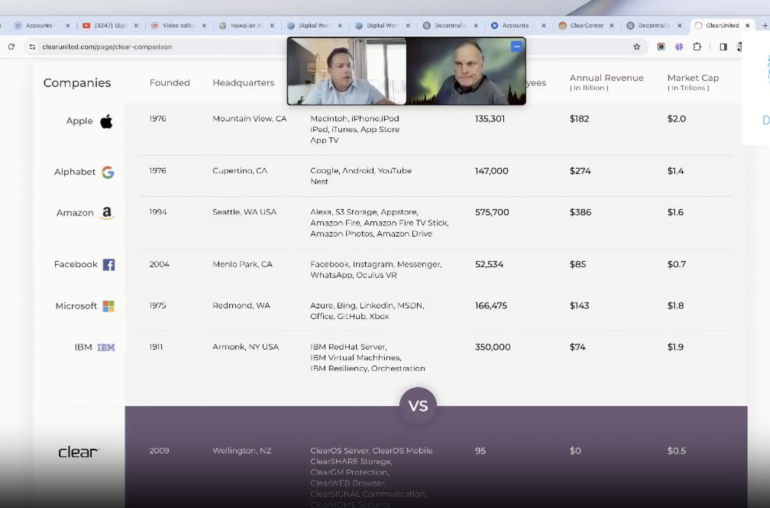The best Linux distros for small businesses provide a platform that emphasizes stability, support, and other important business considerations.
Linux has become increasingly friendly for use by individuals and businesses, partly as an attempt to lure users away from Windows, but also because Linux has come to power not just the wider internet but also most cloud services.
This means while Linux may seem like an intimidating option at first, it could actually be helpful in the longer run for those who need to develop their wider IT skills without proving so much of a challenge as initially feared.
As Linux is free it means you don’t have to worry about licensing fees, and there are a number of virtual machine software platforms that will allow you to install different Linux (or other operating systems) on your existing computer. In fact, Windows 10 now famously ships with Linux as a virtual machine environment.
However, if you would prefer to avoid virtual machines you could instead use an older desktop PC and simply install a Linux distro as the main operating system. Most Linux distros have low resource needs, but do watch out that any hardware drivers you need are provided.
So what’s the best choice for your small business? We’ve approached this selection with a few criteria in mind. Stability must come first: if you’re putting a distro to work, uptime is critical. Since we are talking about small businesses here, the distros should also be easy to deploy, configure and manage. Solid support provision comes a close third.
Here therefore are the options we think are best Linux distros for small business users.
We’ve also featured these Linux guides:
1. ClearOS Server

A distro administered entirely from a web interface
Reasons to buy
+Graphical administration interface+Ample documentation+Commercial support options
ClearOS Server is a CentOS Server-based distro that’s designed as an alternative to commercial options like Red Hat Enterprise Server or Windows Small Business Server. There are several editions of ClearOS Server including a community-supported edition that is offered as a no-cost free download.
You can use the community edition of ClearOS Server to roll out all kinds of network services including a content filter, firewall, an intrusion detection system, a bandwidth manager, domain controller, mail server, and more. Additionally you can also purchase additional server functionalities from its marketplace.
The best thing about ClearOS Server is its ease of deployment. You can use the distro to rollout complex network servers and services from a web-based management interface.
Not only is the interface intuitive to use, it’s designed to help you conduct regular maintenance and administration tasks with a few clicks. Still, the project has ample documentation and in fact you can access module-specific help from within the administration interface itself.
2. NethServer

For point-and-click server rollouts
Reasons to buy
+Zero cost+Easy to deploy and administer+Professional support options Although server deployments require a certain level of expertise and understanding of the base technologies, sometimes you need to deploy servers in a snap. Setting up the popular server platforms is an involved process and involves pulling server software and manually editing the configuration files in a command-line text editor. While there certainly are deployments that require such kind of meticulous involvement, most can use some level of automation.
The NethServer distro started as a fork of SME Server with the goal of easing the configuration of the servers. The distro is based on CentOS and helps you roll-out all kinds of servers without mucking about with configuration files. You can deploy and configure just about every aspect of your deployed servers through a browser-based interface.
You can use NethServer to set up a web filter, a mail server, file server, web server, firewall, VPN, Slack-like team chat, and more. While you can use all its features for free, NethServer does offer several tiers of professional support options.
3. Univention Corporate Server

The most comprehensive option in terms of supported servers
Reasons to buy
+Lots of servers+Online demo+Virtual images
Based on Debian, Univention Corporate Server (UCS) too offers the convenience of an easy-to-use web-based administration panel to easily deploy and manage servers, without dropping down to the command-line. However, unlike the other distros, where possible, UCS uses Docker containers to deploy the different servers and services.
UCS also provides a pretty comprehensive list of servers, boasting of supporting over 90 different modules separated into over a dozen categories, such as identity management, infrastructure, collaboration and groupware, security, virtualization, and more. Thanks to its comprehensive nature, you’ll have to spend some time familiarizing yourself with its peculiarities. However, the distro has ample documentation and videos to ease the process.
The distro is available in multiple editions including a freely available Core edition, which doesn’t differ from the paid editions in terms of features. The paid editions however include support and other benefits. In addition to an installable image, UCS also provides the choice of pre-installed images for both VMWare and VirtualBox, for easier deployment.
4. Zentyal

Another good option for rolling out pre-configured servers
Reasons to buy
+Appealing interface+Free and paid editions+Optional certified training
Zentyal is in the same league as ClearOS Server, NethServer and Univention, in that it allows you to rollout and administer services across your network from the convenience of a graphical interface, although its offering isn’t as wide as some of its peers.
Based on Ubuntu, the latest version of Zentyal is available in a couple of variants and the exact number of servers available for deployment vary between the two. There’s the freely available Development Edition that offers a small set of servers as compared to the full featured but paid main edition.
That said, the Development Edition ships with a wide variety of Gateway, Mail, Infrastructure, and Directory and Domain functions. Once installed, you can configure these services from the web interface itself. Zentyal’s dashboard is visually appealing and is made up of several widgets that you can reposition as per your requirements.
Zentyal’s dashboard also provides quick links to the Documentation and other useful material for an administrator, such as Certified Training.
5. Ubuntu

Linux for home and business
Reasons to buy
+Very well supported by community+LTS gives you long-term stability+Option of paid tech support
As the most popular desktop distribution of Linux, Ubuntu’s reputation might lead you to think that it’s best suited to home users. While Ubuntu’s stability and flexibility for end users is very solid, there’s also a free-to-use Ubuntu Server version to handle your backend tasks.
One of Ubuntu’s strongest features is the level of support it benefits from. The vast user base means there’s a raft of technical documentation available, and its generous community has answered just about every question you might have.
Ubuntu is released twice a year in April and October. The April releases, after every two years, are tagged LTS which stands for Long Term Support, and unlike the regular release, the LTS releases are maintained for five years.
For greater control and management, small businesses can buy a subscription to the Ubuntu Advantage program. All plans give you an additional five years of support (for a total of 10 years) as well as additional features such as kernel live patching, the Landscape on-prem systems management tool, and more.
- Linux Format is the number one magazine to boost your knowledge on Linux, open source developments, distro releases and much more. Subscribe to the print or digital version of Linux Format here





